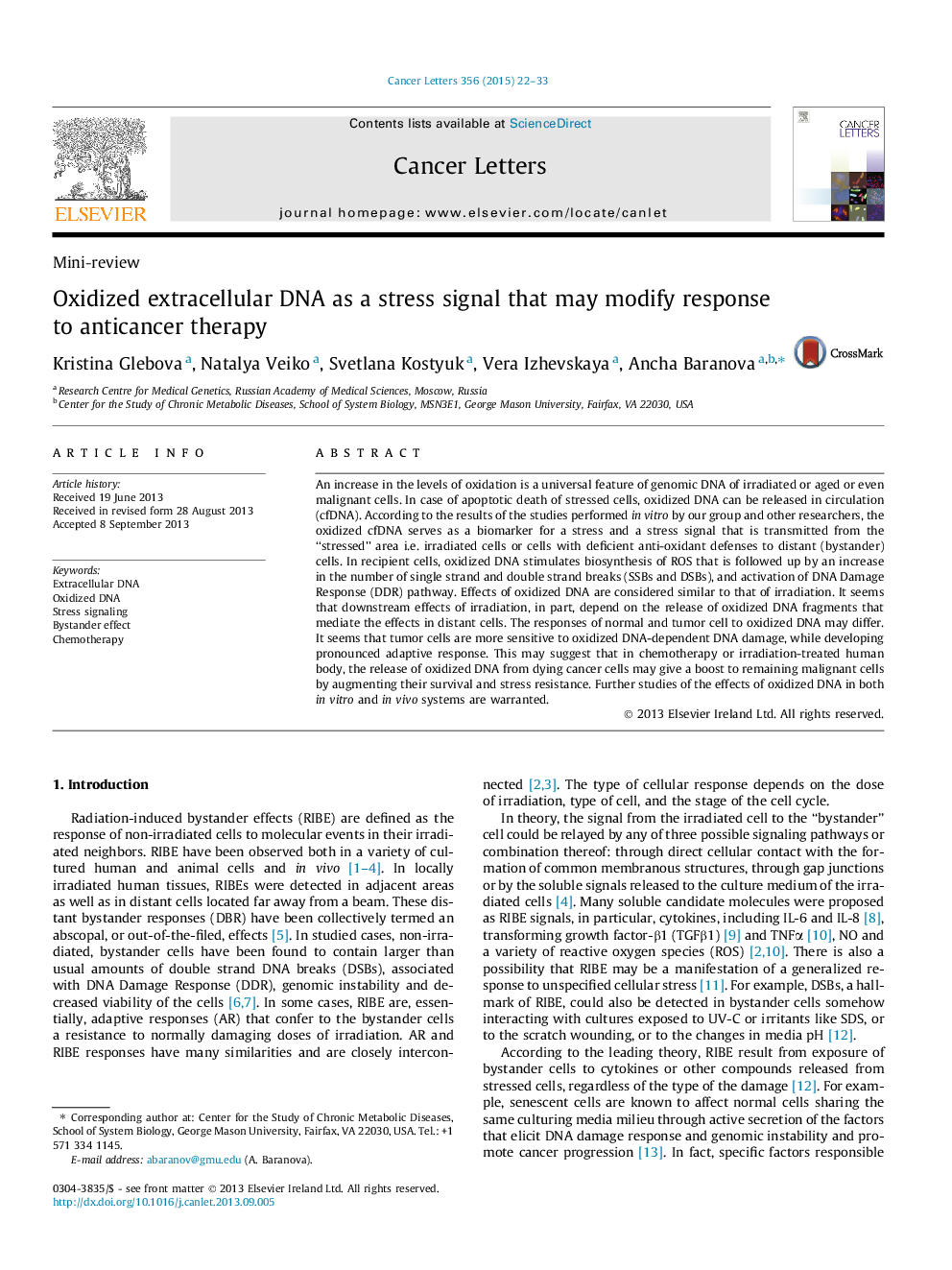| کد مقاله | کد نشریه | سال انتشار | مقاله انگلیسی | نسخه تمام متن |
|---|---|---|---|---|
| 2112540 | 1084395 | 2015 | 12 صفحه PDF | دانلود رایگان |

• Cells dying after oxidative damage release oxidized DNA into circulation.
• Oxidized cfDNA is a biomarker for a stress and a stress signal for distant cells.
• Treatment with oxidized cfDNA stimulates DNA damage in recipient cells.
• Tumor cells are more sensitive to oxidized DNA and develop adaptive response.
• After chemotherapy, oxidized DNA augments survival of remaining tumor cells.
An increase in the levels of oxidation is a universal feature of genomic DNA of irradiated or aged or even malignant cells. In case of apoptotic death of stressed cells, oxidized DNA can be released in circulation (cfDNA). According to the results of the studies performed in vitro by our group and other researchers, the oxidized cfDNA serves as a biomarker for a stress and a stress signal that is transmitted from the “stressed” area i.e. irradiated cells or cells with deficient anti-oxidant defenses to distant (bystander) cells. In recipient cells, oxidized DNA stimulates biosynthesis of ROS that is followed up by an increase in the number of single strand and double strand breaks (SSBs and DSBs), and activation of DNA Damage Response (DDR) pathway. Effects of oxidized DNA are considered similar to that of irradiation. It seems that downstream effects of irradiation, in part, depend on the release of oxidized DNA fragments that mediate the effects in distant cells. The responses of normal and tumor cell to oxidized DNA may differ. It seems that tumor cells are more sensitive to oxidized DNA-dependent DNA damage, while developing pronounced adaptive response. This may suggest that in chemotherapy or irradiation-treated human body, the release of oxidized DNA from dying cancer cells may give a boost to remaining malignant cells by augmenting their survival and stress resistance. Further studies of the effects of oxidized DNA in both in vitro and in vivo systems are warranted.
Journal: Cancer Letters - Volume 356, Issue 1, 1 January 2015, Pages 22–33